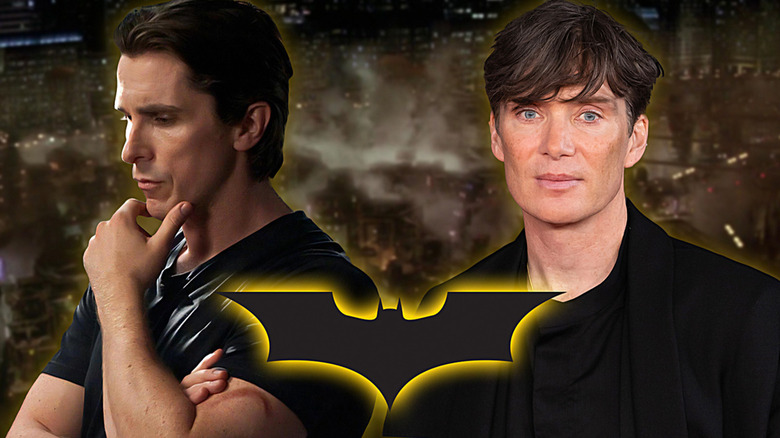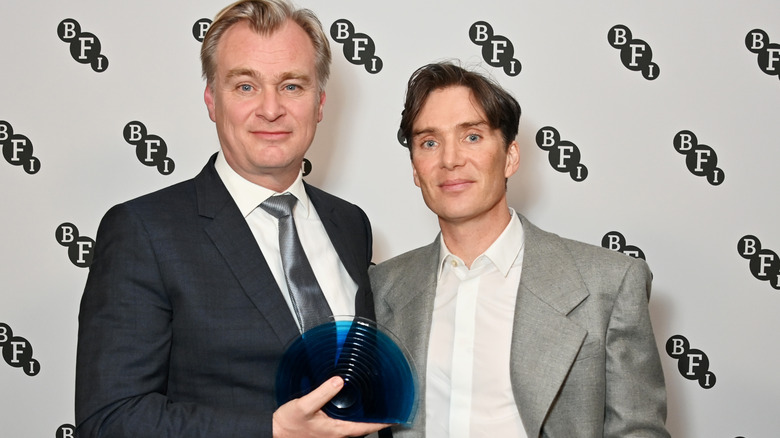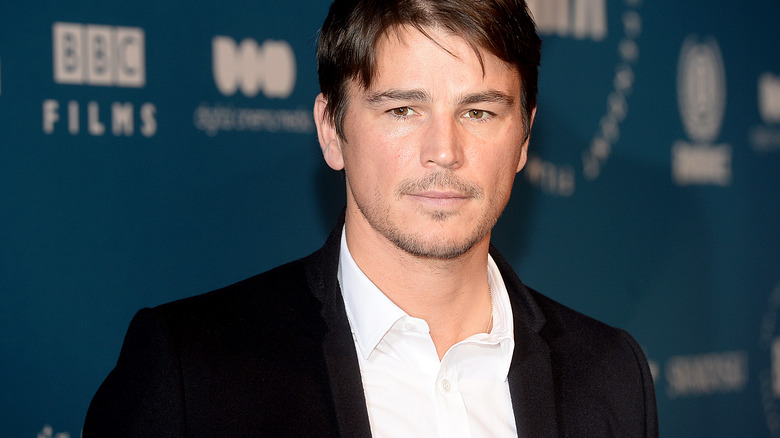The Real Reason Cillian Murphy Lost Batman To Christian Bale
Cillian Murphy nearly played Batman in Christopher Nolan's "The Dark Knight" trilogy, screen testing for the role before it went to Christian Bale. While Murphy didn't land the superhero role, Nolan cast him as Jonathan Crane/the Scarecrow instead, with the actor appearing as one of the main villains in "Batman Begins," and in cameo roles in "The Dark Knight" and "The Dark Knight Rises."
Murphy and Nolan's working relationship continues nearly two decades after his audition for Batman, with the actor playing the lead role in "Oppenheimer," where the duo won critics over. While Murphy earned an Oscar nomination for playing J. Robert Oppenheimer and appears to be a favorite at the upcoming Academy Awards, Nolan recently explained why he didn't see him as "Batman" and why he lost the role to Christian Bale years ago.
Nolan referred to Murphy's stature and presence as precisely why the talented actor didn't land the role of The Dark Knight: "But I think at the time you were quite a bit... more slight than you are now," Nolan told Murphy in a conversation via Deadline. "You walked in, and I remember thinking, 'Are you really going to be able to be Batman?'"' Nolan added Bale brought the necessary energy and physicality to the role required to play such an iconic character as both Wayne and Batman, which he didn't see with Murphy: "I don't think he had the physicality at the time," Nolan revealed. "We tested everyone as Bruce Wayne and we tested them as Batman, and the thing that Christian had that was so striking was that he understood that so much of acting is about reality."
Nolan may not make the same decision today
While Cillian Murphy lost out on the role of Batman in "The Dark Knight" trilogy, Christopher Nolan shared that after seeing his longtime collaborator in "Peaky Blinders," it things could play out differently. As gangster Tommy Shelby, a role Murphy landed with a five-word text, he now sees what he didn't in his presence back when casting "Batman Begins." Nolan said Murphy projected scale in an all-new way in the television role.
"That's an iconic character with an oppressive presence, where he walks into the room, and everything goes quiet, and he owns that space," Nolan told Murphy about watching him play Shelby in the Deadline conversation. "In the way Batman does, or an iconic character of that kind. There's a physicality that's extremely confident and strong in everything he does, in every gesture."
Murphy said he wasn't offered physically imposing roles like Shelby earlier in his career and that landing the role of Scarecrow was the perfect part for him early in his career as he would eventually work his way up to be an even more significant presence on the big screen.
Who else was up for Batman?
Cillian Murphy wasn't the only actor who auditioned or had conversations for the role of Batman in "Batman Begins" before it went to Christian Bale. Josh Harnett, who appeared alongside Murphy and Christopher Nolan's "Oppenheimer," was connected to the role before taking his name from consideration. "Once Upon a Time" actor Eion Bailey also joined Murphy and Bale as actors who screen-tested in costume for the role. According to "Dawson's Creek" and "Fringe" star Joshua Jackson, he was one of the last actors up for the role of Batman and even did a screen test for Nolan. There were also rumors Henry Cavill screen-tested for Batman long before he portrayed Superman in "The Man of Steel," but the British actor disputes claims he was up for the part.
In the end, Nolan made the right decision with Bale as Batman. "The Dark Knight" trilogy is one of the most successful superhero trilogies ever, both financially and critically. It seems Murphy wasn't quite ready to take on such a commanding role at the time, but Nolan saw his potential and cast him as Scarecrow. Ultimately, everything worked out for Murphy, as years after not getting cast, Murphy evolved into an A-list talent whose later work with Nolan on "Oppenheimer" will likely be remembered as his career-defining role.


